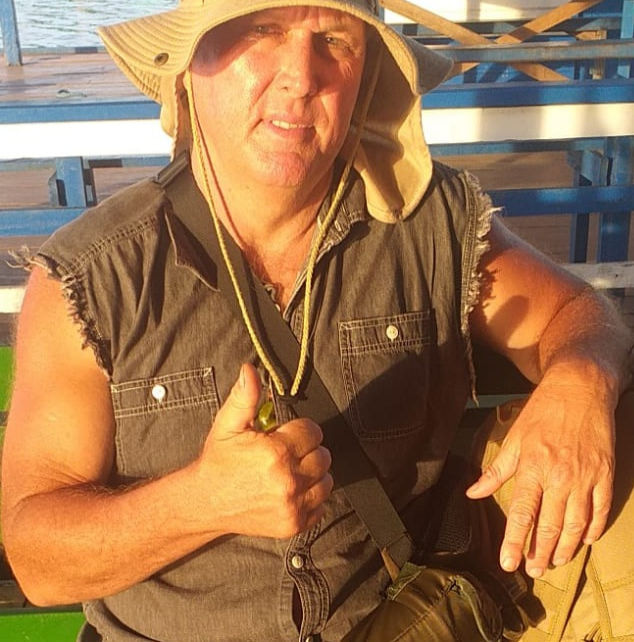The story of our Rainforests - a dialogue with Dr. Daniel Collins

Tropical rainforests are the world’s oldest living ecosystems dating back millions of years. I wonder if we are truly aware of the role they play in our planet.

(Above) Dr Daniel Collins is not only the founder of a successful environmental service company called Coraculture, but he is also the chairman of the African Refugee Council, scientific manager for the Amazon Rainforest Conservancy, and a private investigator for wildlife and environmental issues.
Tara: Good day Dr. Daniel, Thank you for taking the time to do this interview. Would you mind sharing with us about how your journey in conservation started?
Daniel : Hello Tara, yes of course! I grew up in North Queensland, Australia, which has an area which is part of the UNESCO World Heritage Convention. North Queensland is home to the oldest tropical rainforests on earth and it is a place I strongly recommend visiting. I guess that was how my interest in tropical rainforest got ignited. My first overseas trip was to the hearts of Borneo and Sumatra, but I also have traveled to Papua New Guinea, Indochina, and Africa to help in rainforest conservation.
Tara: That sounds incredible and what an adventure you must have had! You have also said that you have just returned from another incredible place, the Amazon. Can you share with us about what you were working on there?
Daniel: Yeah sure. I was in Tambopata, which is in the southern part of Peru. Tambopata and Manu National Park is the most biodiverse area in the Amazon rainforest and possibly the world. Unfortunately, the integrity of this area is threatened by the presence of about 40,000 illegal miners and river pirates. I am working with the Amazon Rainforest Conservancy to address this issue. I was also in Brazil especially in Roraima and Amazonas where illegal gold miners are a serious problem.
Tara: Oh no! That is such a shame. Is there any hope in stopping this at all?
Daniel: Well, under the new government precedence in Brazil there is certainly hope with stern actions being taken. For instance, in Roraima, the Brazilian government has managed to chase away most the illegal miners from the Yanomami area and I hope the same will be done in Tambopata.
Tara: That certainly seems hopeful. If I may ask you, what is the biggest threat to the preservation of the Amazon rainforest and what does the future of our tropical rainforest look like?
Daniel: That is a very good question. Firstly, I would say that the biggest threat to the Amazon is cattle ranching and that it is getting worse. There is also the threat of river poisoning due to the illegal mining activities. The outlook for the future of our rainforest depends on where they are. I would say that the rainforests are well protected in Australia. In Southeast Asia (SEA) or Papua New Guinea for instance, that is not the case. There is much less participation by governments to protect tropical rainforests in SE Asia, and in Papua New Guinea, it is a basically a war between the logging companies and the locals. In Brazil as I have mentioned, with the new government acting on new declarations to protect the Amazon, we could potentially either see an increase of 15% in rainforest protection in coming years, or we could lose about a total 50% of the Amazonian rainforest in the next 20 years due to illegal gold mining and cattle ranching if proper actions are not undertaken.
Tara: It is interesting to know about these various predicaments and threats to the rainforest in different countries. What do you think is the best way to protect our rainforest?
Daniel: We need to first understand that the main problem causing our rainforest's destruction is corruption. It does not matter how good a treaty, agreement, or declaration is, corruption is prevalent. Personally, to me, taking tougher actions and enforcing the law is the only way we can protect our rainforest, similar to what Brazil has achieved recently. We really need to train rangers in enforcement to better defend forest areas from illegal loggers and miners.
Tara: That makes a lot of sense, and I completely understand where you are coming from. Thank you so much for sharing your thoughts and insights on this topic Dr. Daniel. It is very valuable to understand what is happening on the ground and I wish you every ounce of success in your journey and fight for nature 😊
It is inspiring to hear the experience of Dr.Daniel Collins and to have a picture of what is happening with our rainforests as we speak. Be it, a one-time donation to NGO's like the Amazon Rainforest Conservancy or the Rainforest Action Network, spreading awareness about rainforests in our day-to-day conversations, participating in rainforest research/management, signing petitions as well as making the right lifestyle choices, we can certainly be a force for good change to protect this ancient ecosystem before we reach a point of no return.


Please sign in or register for FREE
If you are a registered user on WildHub, please sign in
Great interview Taranee! Save the rainforests <3
Nice work on your third interview @Taranee!